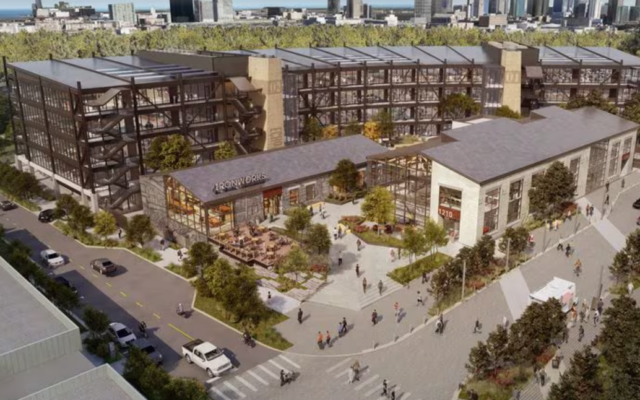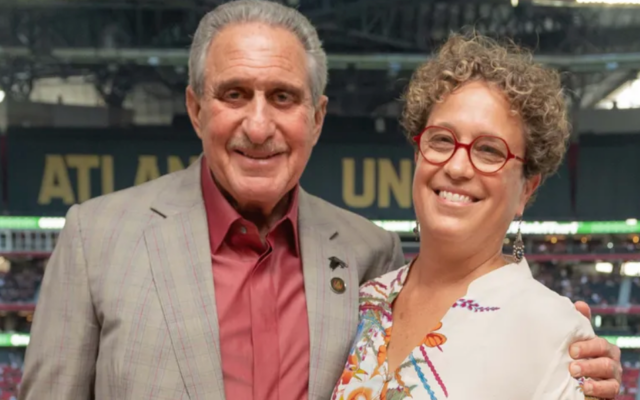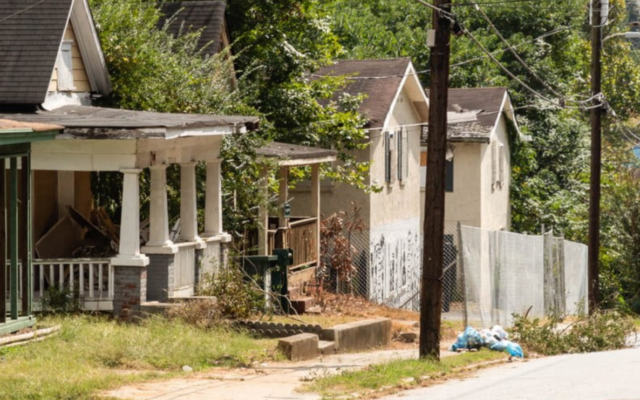Blank Foundation Contributes $22M to Aid Westside
Neighborhoods near Arthur Blank’s Mercedes-Benz Stadium are getting more support to stabilize their neighborhoods and build new housing.

In an effort to aid legacy residents in the communities immediately adjacent to Arthur Blank’s Mercedes-Benz Stadium, his family philanthropic foundation has announced $22.4 million in new grants. Nearly half of the money, or $10 million, will go to support the Westside Future Fund’s effort to raise $55 million for its affordable home building campaign.
The Westside organization aims to build more than 500 new units of affordable housing in the Vine City and English Avenue neighborhoods over the next several years. The two neighborhoods, which number about 7,100 residents, have a long history of poverty and unemployment. Over the last eight years, Blank has contributed $57 million to improve the quality of life there.
The director of the Blank Foundation’s Westside program, Danny Shoy, Jr., told WABE that the multi-million-dollar grant is designed to boost home ownership, which, historically, has been low there.
“Only about 5 percent, or 350 residents, of these two communities are actual homeowners. So, we’re talking about neighborhoods where there are a lot of renters, which is why in our new strategy, our focus on affordable housing will not only focus on permanent affordable rentals, but also permanently affordable homeownership. Because we’d like to see more residents, particularly legacy residents, be homeowners. We know what homeownership means for economic prosperity.”

The present small number of residents who own their own homes there is in danger of shrinking even more. Home prices are on the rise, particularly in the adjacent areas of the booming Westside and along with that are rising property tax bills.
To keep homeowners from being forced to move, the Blank Foundation has joined several other philanthropic entities in supporting a program to pay for any increases in Atlanta property taxes among those who live there.
But with homeownership in the area largely in the hands of absentee homeowners, speculators, and large-scale corporate investors in rental homes, it’s an uphill battle not only to keep residents in their homes, but to provide new residences.
The job has gotten even tougher as the median price of a home in the city has topped $400,000. These marginal neighborhoods, which were once shunned by middle-class home buyers, have begun to look increasingly attractive to them.
Their proximity to the Atlanta Falcons’ stadium, as well as the increasingly lively downtown business district and more fashionable neighborhoods on the booming Westside of Atlanta, has made these low-priced homes even more appealing.

Last year, Mayor Andre Dickens said governments should explore ways to restrict corporate property investors backed by large investment funds. While the funds have slowed their buying as interest rates have risen in the last year, the dangers posed by gentrification are still very much a part of the Westside neighborhoods that the Blank Foundation is hoping to stabilize.
The president of the foundation, Fay Twersky, who has completed a total review of the programs they fund, indicated they “want to swing for the fences” when it comes to making a real impact in the quality of life in those areas where they have invested money.
“In English Avenue in Vine City, we came up with a strategy that’s laser focused on housing, affordable housing, and financial inclusion. We want to ensure that every legacy resident who lives in those two neighborhoods has the opportunity to stay there and have a thriving life. And that’s our bold strategy on the West Side.”
Squaring off against them are those who see opportunity and a quick profit in cheap homes. Last year, one-third of the homes that were bought in the city were sold to investors. The Redfin Corporation, which collects data on home sales, says the percentages for investor sales were higher in Atlanta than in any of the 40 metropolitan areas in America.
According to Bloomberg News, many were so-called tech savvy firms like the Zillow Group, Opendoor Technologies, and Offerpad Solutions that flip properties to absentee landlords backed by Wall Street firms. Often, Bloomberg concluded, “the properties are transferred to investors without ever being listed on the open market.”
The partnership between the Blank Foundation and the Westside Future Fund aims to slow that momentum, while at the same time increasing the supply of affordable housing. But the Blank Family Fund’s president Twersky emphasizes they are always searching for new opportunity to increase the significant power of their financial contributions.
“One of philanthropy’s greatest assets is our flexibility. So, we always want to be flexible. And when new partners emerge, we want to be able to consider new collaborations, all in the spirit of really having impact in the areas that we’re focused on and that we care deeply about.”



comments